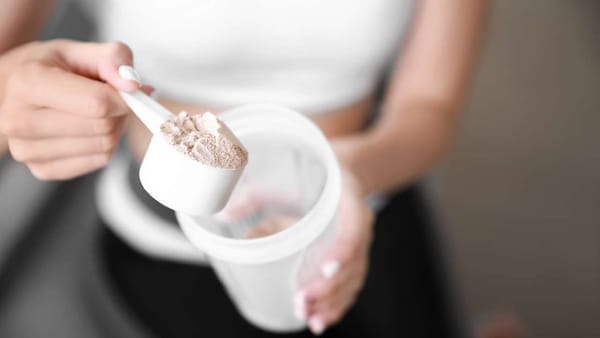Do you have black or dark patches on your knees or elbows?
Don’t be embarrassed – it is a common concern affecting many people.
Dark knees and elbows can have various causes, from environmental factors to medical conditions. Learn about the causes and treatments for these dark skin patches so you can get your skin back to looking smooth and even-toned.
Who doesn’t want beautiful, glowing skin? Rejuvenate your skin by discovering what works best on dark knees - natural remedies like Aloe Vera, Green Tea, and Turmeric as well as potential professional treatments such as laser therapy and chemical peels.
The right combination of treatments will help reveal a healthier-looking radiant skin tone!
Let's get right in.
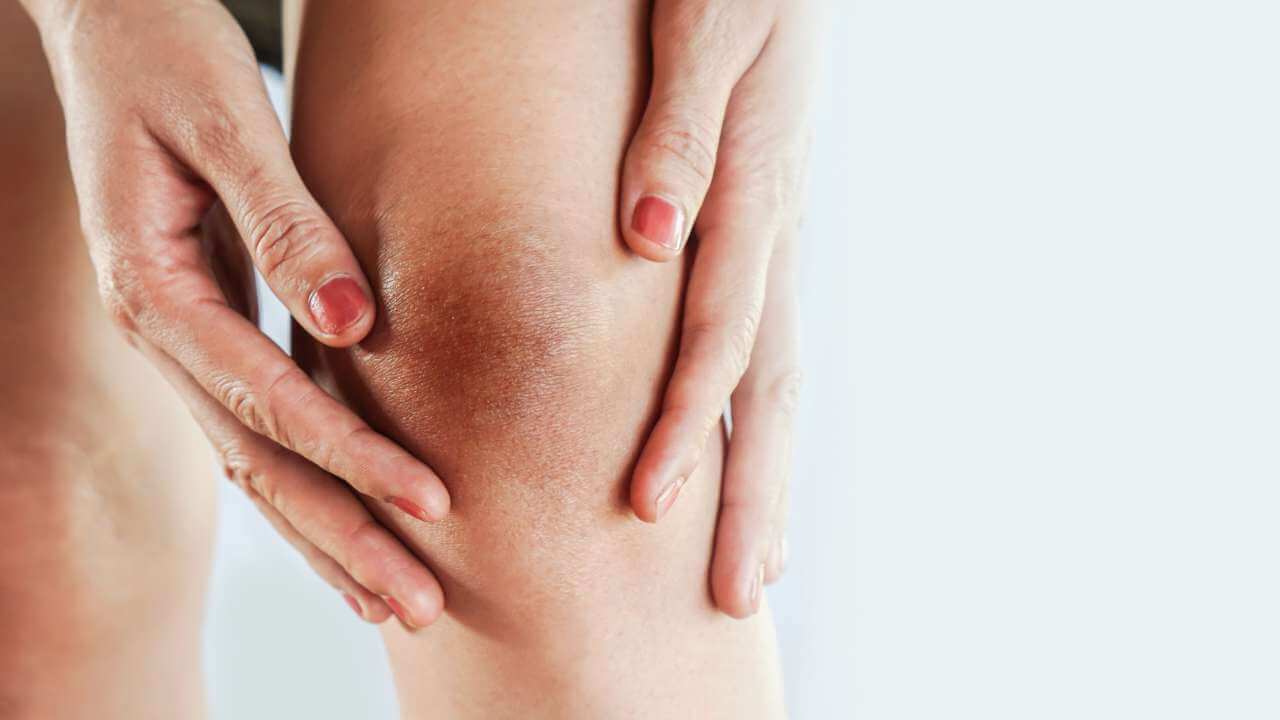
What Causes Dark Knees and Elbows?
People of all ages, races, and skin tones can have dark knees or elbows; this is simply a sign that your body has increased melanin production. It’s natural – not something to be ashamed or embarrassed about.
While it might seem unappealing at first glance, there's no need for medical attention as it's perfectly normal!
For people with darker skin tones, melanin is typically produced in abundance.
As a result, you may be more prone to experiencing dark knees and elbows at some point or another throughout your life.
No matter your skin tone, many elements can contribute to post-inflammatory hyperpigmentation around the knees and elbows. These include:
- Friction from wearing tight clothing or activities. Dry and sensitive skin can be more prone to discoloration. As the knee joint is continually in motion, it may irritate the surface of your skin resulting in tiny red bumps and the appearance of "strawberry legs".
- Unprotected exposure to UV rays due to extended sun exposure.[1]
- An accumulation of dead skin cells.
- Skin conditions such as eczema and psoriasis.[2,3]
- Dryness in the area.
Although excess melanin is harmless, if you experience signs of a damaged skin barrier such as itchiness, flakiness, or general skin irritation without a known cause, it's best to seek advice from your doctor or dermatologist.[4]
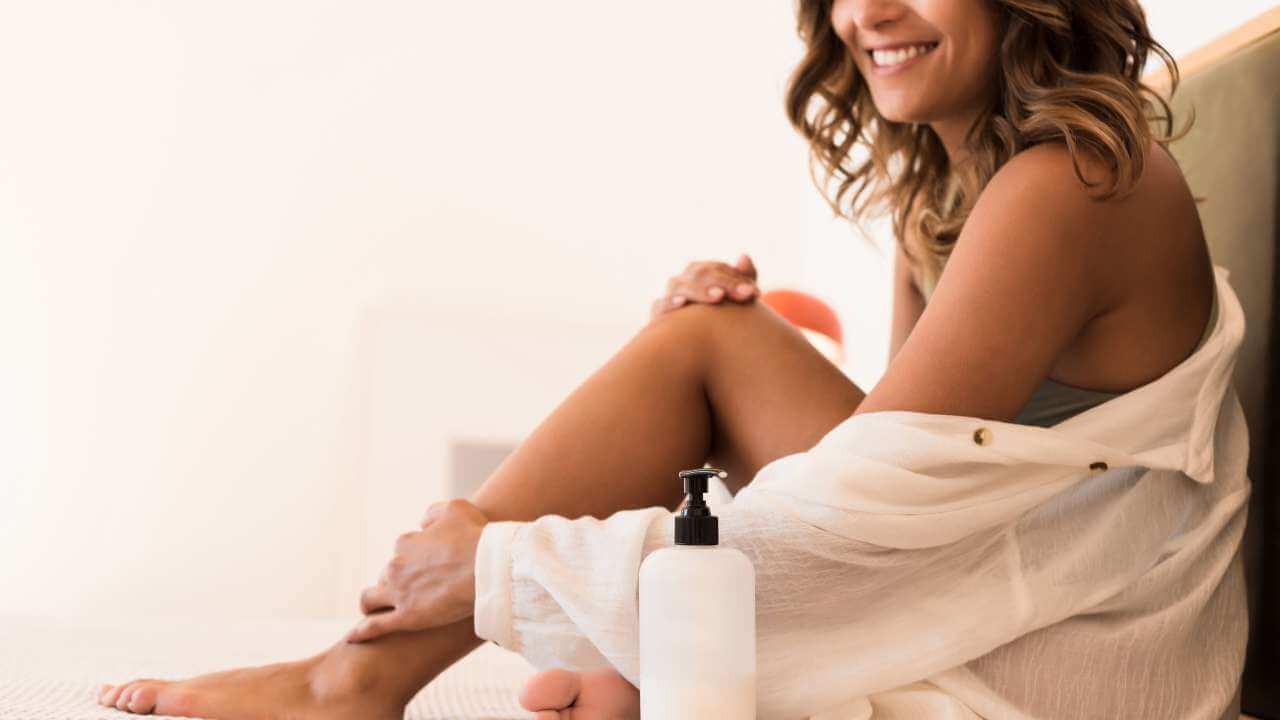
How to Treat Dark Knees and Elbows?
Even though dark knees or elbows aren't detrimental to your health, you may still want to lighten them. Here are some methods for achieving this goal.
1) Vitamin C
- Vitamin C is a powerful antioxidant that amplifies the protective benefits of sunscreen and helps inhibit melanin production in your skin. Its tyrosinase-blocking effects have been clinically proven to be effective in minimizing sun damage.[5]
2) Retinoids
- Retinoids, or vitamin A derivatives, are highly effective in restoring skin's youthful glow.[6] Regular use helps reduce sun damage and unsightly discoloration, leaving you with a healthy complexion that radiates from within!
3) Alpha-Hydroxy Acids
- Alpha-hydroxy acids are the secret weapon to a glowing, even skin tone. These powerful exfoliants will instantly improve your skin texture by eliminating those pesky dead cells that contribute to dullness and premature aging.[7]
Taking into account the fact that some skin-lightening products can be overbearing for your skin is essential.
Irritation and heightened sensitivity to UV rays are possible side effects, yet could become even more detrimental if used incorrectly as they may cause skin damage and hyperpigmentation, exacerbating any issues one might have previously had with their complexion.
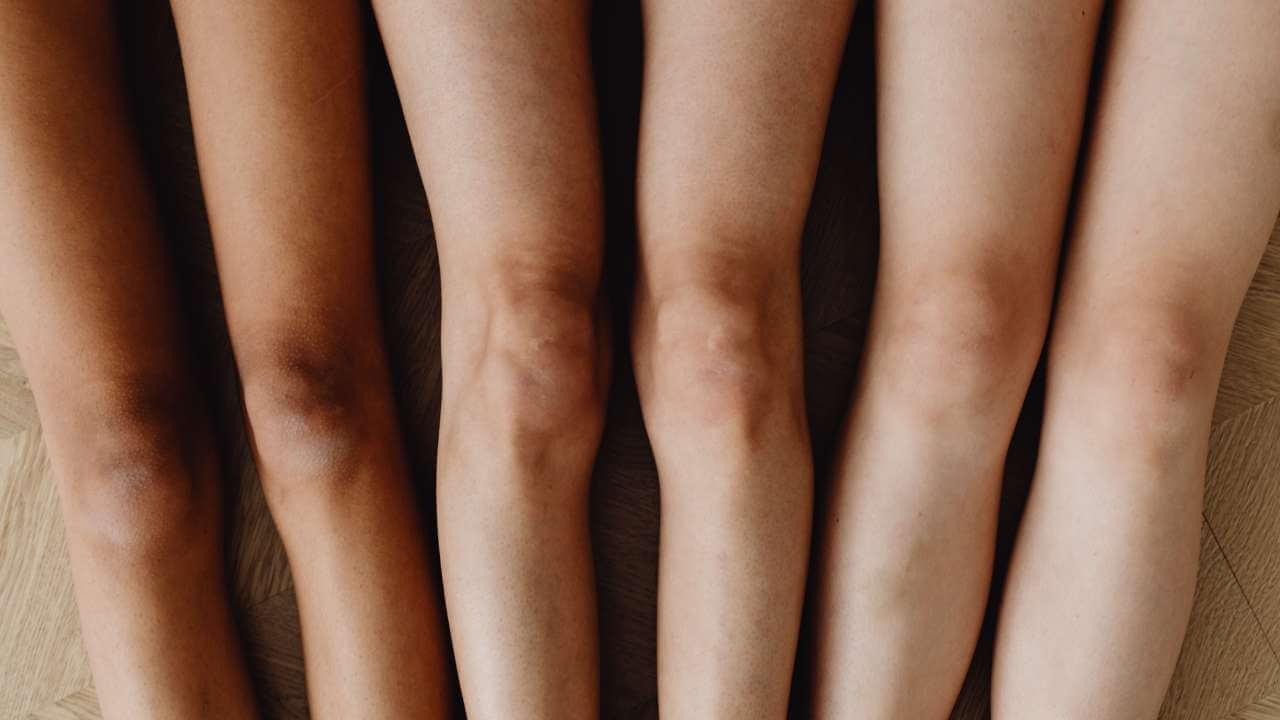
Precautions Before Using OTC Topicals for Dark Knees and Elbows
When using over-the-counter topicals, be aware that certain ingredients can cause serious skin reactions.
1) Hydroquinone
- Hydroquinone is known to lighten skin but may lead to redness or dryness on sensitive complexions.
2) Hydrogen peroxide
- Hydrogen peroxide should also be used with caution as it has been associated with irritation and blistering.
3) Mercury
- Although mercury offers temporary lightening results, you need to be cautious due to its corrosive nature when misused.
4) Topical Steroids
- Topical steroids are typically not included in over-the-counter medications for the reason that they may lead to unwanted consequences like bruise susceptibility, stretched skin, thinned dermis, and even adrenal gland complications.
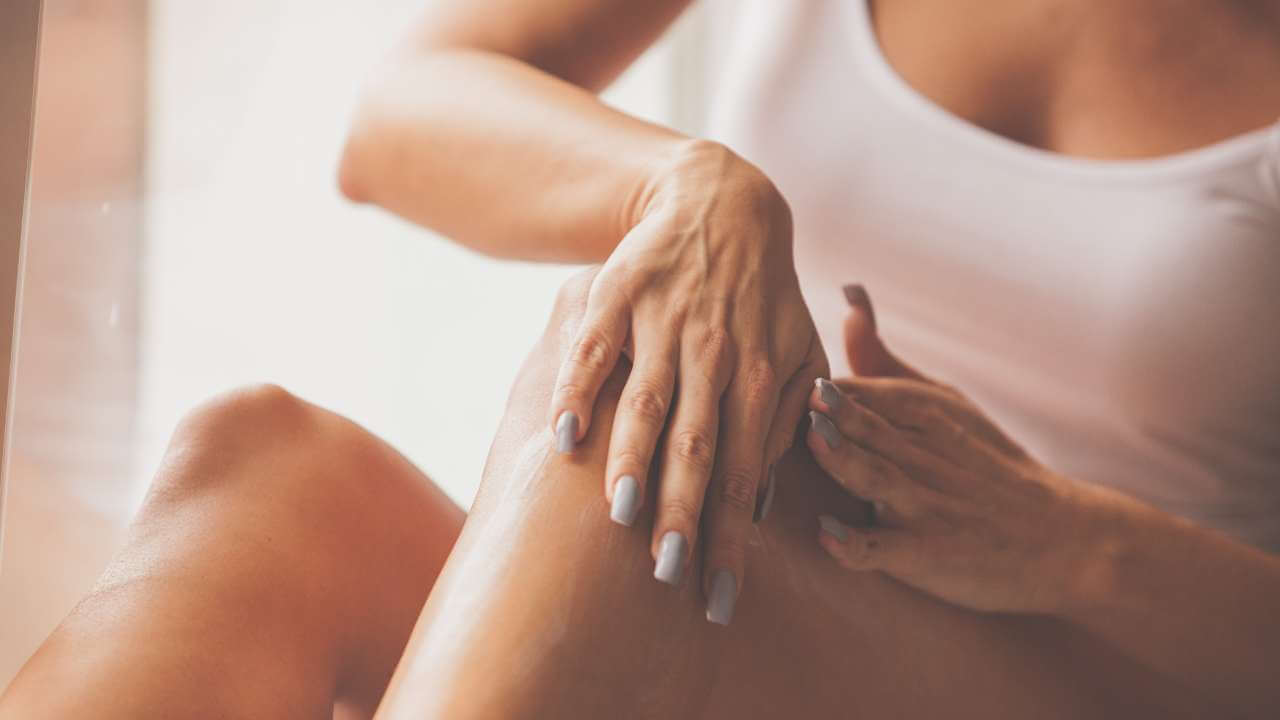
Natural Remedies to Lighten Dark Knees and Elbows
There are several home remedies and treatments that can help enhance the tone and texture of your dark knees over time. Some common solutions include:
1) Aloe Vera
- Aloe Vera is renowned for its calming, soothing effects that can provide relief from irritation or sunburns.[8] Moreover, one study even discovered that aloe vera may help reduce the sun-induced darkening of skin tone.[9]
2) Turmeric
- Turmeric (Curcuma longa) is a powerful spice that offers natural skin benefits due to its curcumin content.[10] This vibrant yellow herb has been used for centuries as an effective remedy for dark spots and other areas of hyperpigmentation.
3) Green Tea
- Green tea leaves contain epigallocatechin gallate, a chemical compound that may be beneficial for skin-lightening.[11] It impedes the enzymes responsible for creating melanin in the body, resulting in a lighter complexion.
How To Prevent Dark Knees and Elbows?
You can take proactive steps to reduce your risk of dark knees and elbows. Here are the top strategies for prevention:
Sunscreen
Safeguard your skin by using broad-spectrum sunscreen all over your body, including your knees.
Hyperpigmentation is often caused by UV rays, so applying sunscreen regularly and wearing protective clothing will be highly beneficial for preventing sun damage and discoloration of healthy skin.
Moisturize Regularly
A regular moisturizing routine is essential to keeping your skin looking and feeling its best.
For optimal hydration, be sure to apply a nourishing cream each day on the knees specifically - this will help keep them supple, glowing, and healthy.
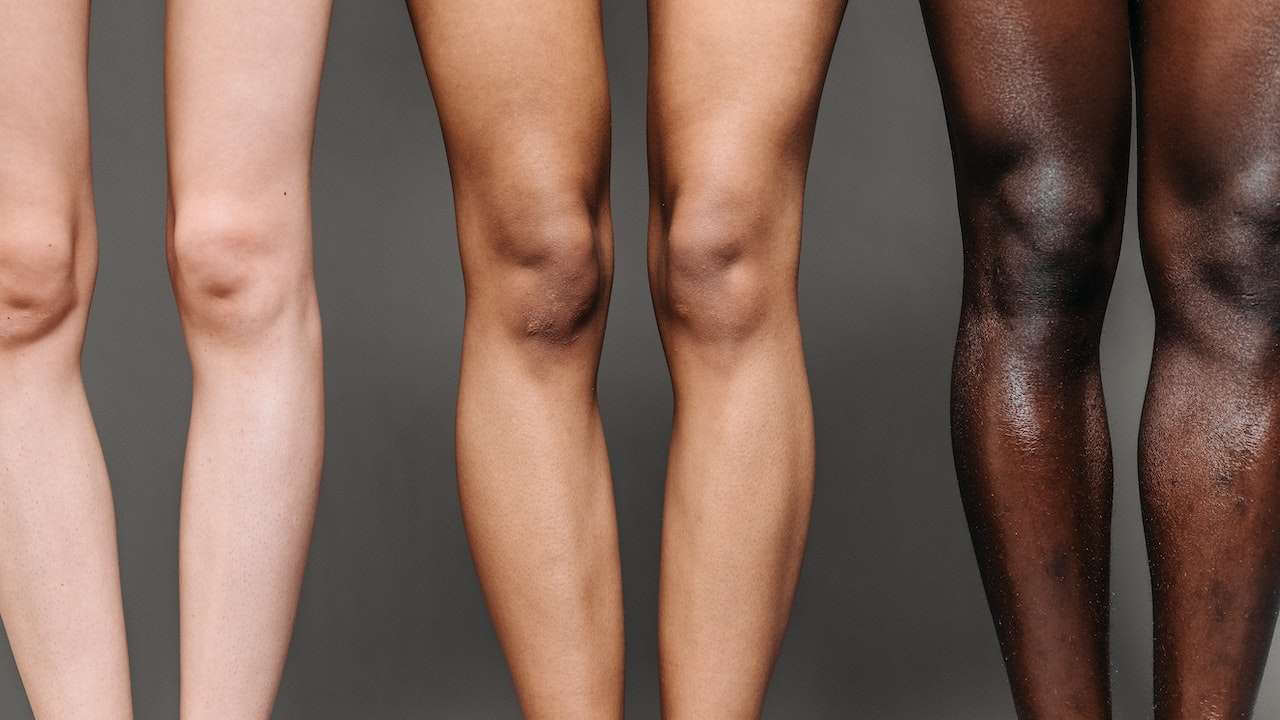
Did We Mention...
Dark Knees & Elbows FAQs?
Still, have some questions?
To make things simpler this section provides answers to some of the most frequently asked questions about dark knees.
If you have any additional questions, please consult with your healthcare professional.
Q: Is It Necessary to Consult with A Dermatologist for Dark Knees and Elbows?
Dark knees or elbows are of no medical concern and generally aren't the result of any serious health issues. Thus, a physician's appointment is not necessary unless you experience emotional distress due to your kneed appearance.
If that's the case, consult with your doctor who may provide advice on over-the-counter or prescription creams that could be beneficial in lightening darkened skin.
If the darkened knees are accompanied by any other symptoms, such as itching, scabs, or flaking, it is important to seek professional medical advice. The darkening of the skin could be related to psoriasis or another dermatological disorder for which a course of treatment may lighten and improve its appearance.
Q: What Can I Do to Prevent Dark Knees and Elbows?
Using a gentle skin cleanser, such as one that contains natural ingredients like aloe vera gel, to regularly remove any dead skin cells and excessive oils can help prevent skin discoloration of the skin.
Additionally, sunscreen is recommended if your skin is exposed to the sun for an extended period.
You should also consult with your doctor about proper nutrition and hydration.
A balanced diet and adequate water intake can help keep skin healthy, hydrated, and less prone to discoloration.
Finally, make sure to wear loose clothing that won't rub against your dry skin, as tight clothes can cause friction and lead to discoloration.
Q: What Skin Care Products Can Help with Skin Discoloration?
Skin-lightening creams and serums containing skin-lightening agents such as hydroquinone, kojic acid, azelaic acid, and topical vitamin C, can be helpful in skin-lightening.
Additionally, skin moisturizers containing a natural skin-lightening agent such as licorice extract, mulberry extract, and bearberry extract can help improve uneven skin tone and texture.
Regular use of skin-lightening and skin-care products can help improve skin discoloration and promote skin health.

The Final Mention
Dark knees and elbows can be embarrassing, but it’s important to remember that you are not alone. The best thing you can do is take care of your skin, eat nutritious foods, and use natural ingredients to lighten the area.
Exercise and good sleep habits help too, so don’t forget about those parts! Increasing blood flow by doing regular exercise will increase the effectiveness of any treatments.
With patience, consistency, and a little bit of self-care, you’ll be able to get your dark knees and elbows under control in no time.
Have you ever struggled with dark knees or elbows? What have you done to combat them? Let us know in the comments below!
✅ 11 Sources
HealthMention only uses sources from authoritative and reliable resources, such as peer-reviewed studies, to strengthen the accuracy of our content.
- Bonilla C, Ness AR, Wills AK, Lawlor DA, Lewis SJ, Davey Smith G. Skin pigmentation, sun exposure and vitamin D levels in children of the Avon Longitudinal Study of Parents and Children. BMC Public Health. 2014;14(1). doi:https://doi.org/10.1186/1471-2458-14-597
- Eczema: Overview. Nih.gov. Published February 23, 2017. https://www.ncbi.nlm.nih.gov/books/NBK279399/
- Nair PA, Badri T. Psoriasis. PubMed. Published 2020. https://www.ncbi.nlm.nih.gov/books/NBK448194/
- Brenner M, Hearing VJ. The protective role of melanin against UV damage in human skin†. Photochemistry and Photobiology. 2007;84(3):539-549. doi:https://doi.org/10.1111/j.1751-1097.2007.00226.x
- Abdullah M, Jamil RT, Attia FN. Vitamin C (Ascorbic Acid). PubMed. Published 2023. https://www.ncbi.nlm.nih.gov/books/NBK499877
- Mukherjee S, Date A, Patravale V, Korting HC, Roeder A, Weindl G. Retinoids in the treatment of skin aging: an overview of clinical efficacy and safety. Clinical interventions in aging. 2006;1(4):327-348. https://www.ncbi.nlm.nih.gov/pmc/articles/PMC2699641/
- Tang SC, Yang JH. Dual Effects of Alpha-Hydroxy Acids on the Skin. Molecules : A Journal of Synthetic Chemistry and Natural Product Chemistry. 2018;23(4). doi:https://doi.org/10.3390/molecules23040863
- Surjushe A, Vasani R, Saple D. Aloe vera: A short review. Indian Journal of Dermatology. 2008;53(4):163. doi:https://doi.org/10.4103/0019-5154.44785
- Choi S, Park YI ., Lee SK ., Kim JE ., Chung MH . Aloesin inhibits hyperpigmentation induced by UV radiation. Clinical and Experimental Dermatology. 2002;27(6):513-515. doi:https://doi.org/10.1046/j.1365-2230.2002.01120.x
- Vollono L, Falconi M, Gaziano R, et al. Potential of Curcumin in Skin Disorders. Nutrients. 2019;11(9). doi:https://doi.org/10.3390/nu11092169
- Chacko SM, Thambi PT, Kuttan R, Nishigaki I. Beneficial effects of green tea: A literature review. Chinese Medicine. 2010;5(1):13. doi:https://doi.org/10.1186/1749-8546-5-13




